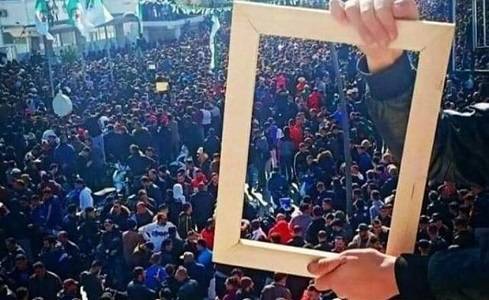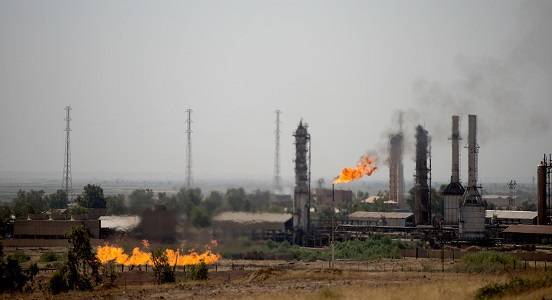 The Iraqi parliamentary elections were held early in response to the 2019 mass protests. The final results have yet to be announced; yet, it appears that the Sadrist movement is the big winner while pro-Iranian militias seem to have suffered the greatest loss. Considering though the lowest voter turnout since Saddam Hussein’s removal in 2003, the very democratic legitimacy of the new government, whose formation process is expected to be lengthy and complex, is under question. Additionally, its fragility is highlighted in the gravity of the challenges it faces: serious socio-economic problems related to the Covid-19, climate change and entrenched corruption.
The Iraqi parliamentary elections were held early in response to the 2019 mass protests. The final results have yet to be announced; yet, it appears that the Sadrist movement is the big winner while pro-Iranian militias seem to have suffered the greatest loss. Considering though the lowest voter turnout since Saddam Hussein’s removal in 2003, the very democratic legitimacy of the new government, whose formation process is expected to be lengthy and complex, is under question. Additionally, its fragility is highlighted in the gravity of the challenges it faces: serious socio-economic problems related to the Covid-19, climate change and entrenched corruption.
 The ongoing process of the “safe zone” establishment in Northeastern Syria and the management of the Idlib province further complicate and strain relations between allies, jeopardizing an already fragile and volatile state of affairs. The reconciliation of the incompatible aims of all parties involved therein is an uphill task. Both the US and Russia struggle to balance the colliding interests of their allies on the ground, whilst maintaining good ties with Turkey appears pivotal for them. For its part, Turkey, pressed by its domestic problems, is using the refugees and the jihadist threat as bargaining chips in negotiations.
The ongoing process of the “safe zone” establishment in Northeastern Syria and the management of the Idlib province further complicate and strain relations between allies, jeopardizing an already fragile and volatile state of affairs. The reconciliation of the incompatible aims of all parties involved therein is an uphill task. Both the US and Russia struggle to balance the colliding interests of their allies on the ground, whilst maintaining good ties with Turkey appears pivotal for them. For its part, Turkey, pressed by its domestic problems, is using the refugees and the jihadist threat as bargaining chips in negotiations.
 The Algerian people massively took to the streets for a fourth consecutive Friday on March 15th 2019, protesting against the elite, despite President Bouteflika’s maneuver four days earlier, in which he sought to appease the demonstrators by withdrawing his initial candidacy for a fifth term and postponed sine die the elections scheduled for the 18th of April. The protesters, most of them young and coming from all backgrounds, appear determined, while, at the same time, cracks are visible given the multiplication of defections within the ruling party and the business elites. However, it is of note that the Algerian system, a complex civilian-military-business nexus, would not readily give up its power and profits, and, most importantly, the army’s domination within the system is not easily challenged.
The Algerian people massively took to the streets for a fourth consecutive Friday on March 15th 2019, protesting against the elite, despite President Bouteflika’s maneuver four days earlier, in which he sought to appease the demonstrators by withdrawing his initial candidacy for a fifth term and postponed sine die the elections scheduled for the 18th of April. The protesters, most of them young and coming from all backgrounds, appear determined, while, at the same time, cracks are visible given the multiplication of defections within the ruling party and the business elites. However, it is of note that the Algerian system, a complex civilian-military-business nexus, would not readily give up its power and profits, and, most importantly, the army’s domination within the system is not easily challenged.
 Relations between Erbil and Baghdad have been ofttimes strained in the past. Lately, following the fallout of the 2017 referendum of independence, KRG lost most of its tools for leverage in negotiations with Federal government. That has been evident in the military invasion and finally re-establishment of Central government’s control over Kirkuk and most of the disputed territories, and given the international, notably US, silence. One year later, after the Iraqi and Kurdistan Region’s parliamentary elections in 2018, hopes are relatively renewed. However, as long as key issues in their disagreements remain unsolved, these hopes can easily fade away.
Relations between Erbil and Baghdad have been ofttimes strained in the past. Lately, following the fallout of the 2017 referendum of independence, KRG lost most of its tools for leverage in negotiations with Federal government. That has been evident in the military invasion and finally re-establishment of Central government’s control over Kirkuk and most of the disputed territories, and given the international, notably US, silence. One year later, after the Iraqi and Kurdistan Region’s parliamentary elections in 2018, hopes are relatively renewed. However, as long as key issues in their disagreements remain unsolved, these hopes can easily fade away.
The Centre for Mediterranean, Middle East & Islamic Studies posts a multitude of positions in the context of free academic debate. These do not necessarily reflect the positions of the CEMMIS. The use and reproduction of the multimedia material displayed in the CEMMIS website has non-profit character and serves academic and educational purposes, with full respect to copyright and intellectual property laws, and in accordance with the Greek Laws 2121/1993 and 2557/1997.

